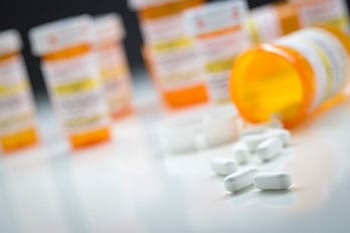Hospitals are abusing this drug discount program. Congress must step in.
Style Magazine Newswire | 1/22/2024, 12:50 p.m.
By Guy Anthony
Hospital chains are unfairly profiting off a program meant to help low-income patients afford their medicines. If policymakers don't reform this system soon, I worry that many of the marginalized patients I've devoted my career to protecting won't be able to access the care they need.
The program, known as 340B, gives drug discounts to hospitals in underprivileged areas so that they can better serve their communities. Yet, with little oversight, the hospitals can divert the savings to their own bottom lines.
In short, money intended to help marginalized communities is instead being funneled into hospital profits in ever-greater amounts. Having spent much of my career helping Black men with HIV, I find this gravely concerning.
It all started three decades ago when lawmakers launched a seemingly benevolent plan: In order to help non-profit "safety net" hospitals in poor communities, 340B required pharmaceutical companies to sell them drugs at big discounts. The idea was that this would lower drug prices for low-income patients and also help the hospitals, so that they could reinvest in facilities, equipment, and staff to serve disadvantaged patients.
Unfortunately, the 1992 law failed to codify any rules about what hospitals should do with the savings, so no proof of reinvestment is required. Soon enough, even hospitals serving prosperous communities realized they could use the law's loopholes to turn 340B into a profit center.
Many hospitals have multiple locations. Under current regulations, a hospital can use its facility in an underserved community to qualify for the 340B Program, take millions of dollars in drug discounts, then resell the drugs in more affluent neighborhoods.
The profit from such maneuvers can be substantial. For instance, 340B hospitals sell top oncology drugs at a median of 4.9 times their discounted price, according to a report from the Community Oncology Alliance.
It's no wonder that 44% of U.S. hospitals now report that the 340B program is a substantial revenue source.
Despite the program's rapid expansion, there's little evidence that it's benefiting marginalized patients. A study in the New England Journal of Medicine found that the "financial gains for hospitals have not been associated with clear evidence of expanded care or lower mortality among low-income patients."
In fact, 340B may actually increase healthcare costs for low-income patients. Because hospitals benefit from the difference between the discounted drug price and the sale price, they are incentivized to prescribe more expensive drugs, which yield higher profit margins than lower-cost generic alternatives.
This appears to be happening with the PrEP drugs -- short for preexposure prophylaxis -- that prevent transmission of HIV. A report from the American Action Forum, a think tank, found that 340B likely incentivizes hospitals to prescribe more expensive brand-name PrEP over generic versions. This means some patients are paying more than they should for this lifesaving medicine.
Congress needs to reform the bloated and unaccountable 340B program as soon as possible. Democrats and Republicans should be able to agree that eligibility standards must be tightened and reporting requirements improved. Hospitals must use 340B profits to help our most vulnerable patients.
Guy Anthony is the president and CEO of Black, Gifted & Whole.




